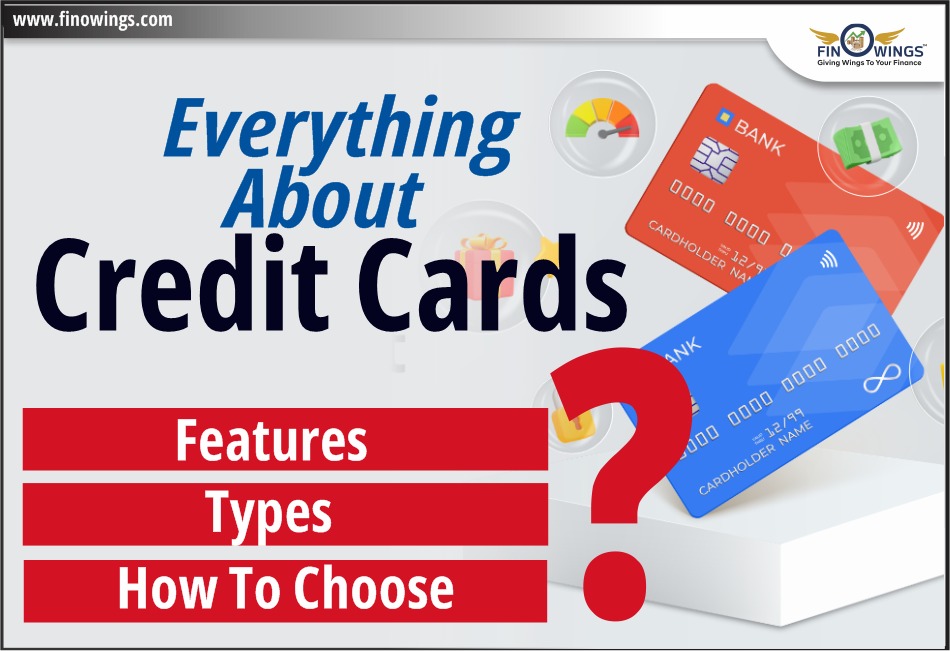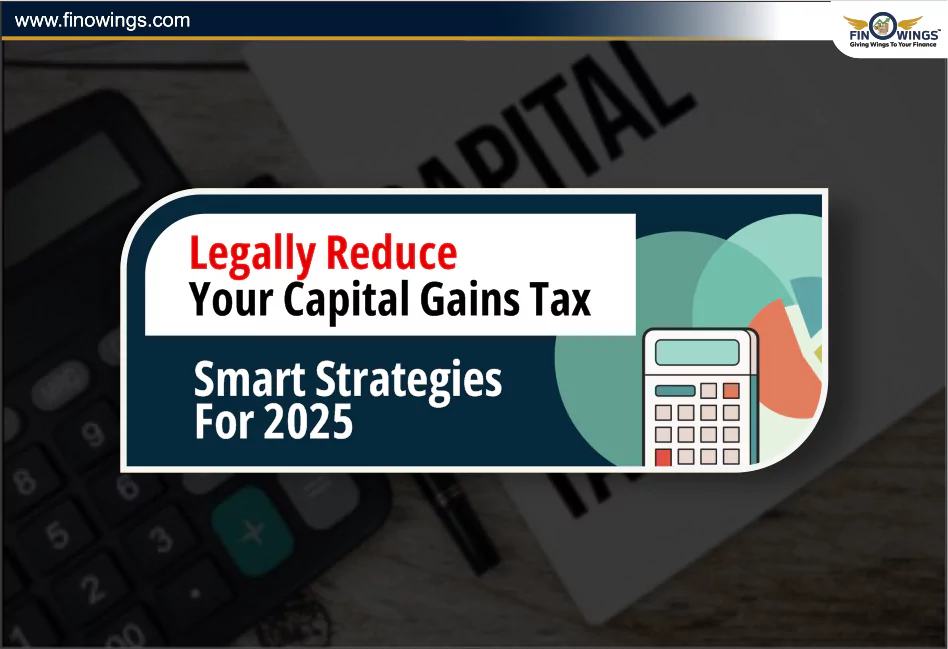Home >> Blog >> Everything About Credit Cards: Features, Types, How to Choose?
Everything About Credit Cards: Features, Types, How to Choose?

Table of Contents
In the fast-paced landscape of personal finance, credit cards have evolved into essential tools for managing transactions and accessing credit. This detailed blog explores the fine distinction of credit cards, covering their features, types, and the essential aspects of selecting the ideal card for your financial needs.
Understanding Credit Cards
A credit card, more than a mere piece of plastic, is a financial instrument that empowers cardholders to borrow funds for the payment of goods and services. Issued by banks or financial institutions, credit cards necessitate the repayment of borrowed amounts, including applicable interest and agreed-upon charges, either in full by the billing date or through staggered payments over time.
Aside from the standard credit line, credit card issuers may offer a separate cash line of credit (LOC), enabling users to access cash advances through various channels. These cash advances often come with distinct terms such as higher interest rates and the absence of a grace period. Issuers determine borrowing limits based on an individual's credit rating. Credit cards remain a prevalent payment method, widely accepted by businesses for purchasing consumer goods and services.
How Credit Card Work ?
Credit cards operate within a framework of borrowing and repayment, typically charging a higher Annual Percentage Rate (APR) compared to other consumer loans. Interest charges on unpaid balances commence approximately one month after a purchase, with exceptions for 0% APR introductory offers. A legal grace period of at least 21 days precedes the accrual of interest on purchases. Understanding whether interest accrues daily or monthly is crucial, especially when considering balance transfers.
For individuals with poor credit histories, secured credit cards present a viable option. These cards require a cash deposit, providing a line of credit equivalent to the deposit amount. Responsible usage over time may result in the refund of these deposits.
Types of Credit Cards
Major credit cards, including Visa, Mastercard, Discover, and American Express, are issued by various entities. Many credit cards entice users with incentives like airline miles, hotel room rentals, gift certificates, and cash back, commonly known as rewards credit cards.
National retailers often issue branded credit cards, with the store's name clearly displayed. While store cards are generally easier to qualify for, their use is limited to purchases from the issuing retailer. Some large retailers offer co-branded major Visa or Mastercard credit cards that extend usability beyond the retailer's stores.
Secured credit cards, designed for those with limited or poor credit histories, require a security deposit. These cards offer limited lines of credit, often refunded after demonstrating responsible card usage. Additionally, prepaid debit cards operate on a secured payment basis, linking available funds to a linked bank account. Unsecured credit cards, in contrast, do not require security deposits, offering higher credit limits and lower interest rates compared to secured cards.
Building Credit History with Credit Cards
Used responsibly, both regular and secured credit cards contribute to building a positive credit history. This is essential for making online purchases, eliminating the need for cash, and reporting payments to major credit agencies. Responsible card usage can lead to strong credit scores, opening doors to increased credit lines and potential upgrades for secured cardholders.
Building good credit involves making regular, on-time payments, avoiding late payments, keeping credit utilisation within the credit limit, and maintaining a low debt-to-income ratio. Responsible purchases and timely payments contribute to an improved credit score, enhancing attractiveness to other lenders.
How to Choose the Right Credit Card
Selecting the right credit card is a pivotal financial decision, demanding careful consideration of individual needs and preferences. Here are key factors to guide your decision-making process:
1. Determine Your Spending Habits
- Assess your typical spending patterns, considering categories such as groceries, gas, travel, and entertainment. Choose a card that aligns with your predominant spending areas.
2. Understand the APR
- Familiarise yourself with the Annual Percentage Rate (APR) of potential cards. Consider whether the card offers a fixed or variable APR, and be attentive to any introductory APR offers.
3. Explore Rewards and Incentives
- Evaluate the rewards and incentives offered by different cards. Some may provide cash back, while others offer travel rewards or discounts. Pick a card with rewards that suit your lifestyle.
4. Consider Annual Fees
- Assess whether the card charges an annual fee. While some cards offer benefits that outweigh the fee, others may not. Choose a card with a fee structure that matches your preferences.
5. Examine Credit Limit and Usage Flexibility
- Understand the credit limit offered and whether the card allows for increased limits over time. Consider the flexibility of usage, especially if you anticipate changes in spending patterns.
6. Review Introductory Offers
- Look for cards with enticing introductory offers, such as 0% APR for balance transfers or initial purchase periods. Understand the duration and terms of these offers.
7. Evaluate Additional Benefits
- Some cards come with additional perks such as travel insurance, extended warranties, or purchase protection. Consider whether these benefits align with your needs.
8. Check Customer Service and Accessibility
- Assess the customer service reputation of the credit card issuer. Ensure easy accessibility to account information through online platforms or mobile apps.
9. Examine Foreign Transaction Fees
- If you travel internationally, consider whether the card imposes foreign transaction fees. Choose a card that minimises additional costs for overseas transactions.
Key Takeaways
- Credit cards provide a flexible means of borrowing funds for payments.
- Repayment includes the borrowed amount, interest, and additional charges.
- Issued by banks, stores, or financial institutions, credit cards offer various perks.
- Secured credit cards and debit cards cater to individuals with limited or poor credit.
Conclusion
Choosing the right credit card involves a thoughtful evaluation of your financial habits, preferences, and goals. Armed with an understanding of credit card mechanics, types, and building credit history, you can make informed decisions that align with your financial well-being. Follow the outlined steps to select a credit card that not only meets your immediate needs but also contributes positively to your long-term financial health. Remember, a credit card is not just a payment tool; it's a strategic financial instrument that, when chosen wisely, enhances your financial journey.
Frequently Asked Questions
Eligibility criteria can vary among issuers, but common requirements include a minimum age (usually 18 years), a stable source of income, and a good credit history. Some issuers may have specific income or credit score thresholds.
While it may be challenging, some issuers offer credit cards for individuals with limited credit history or lower credit scores. Secured credit cards or cards with lower credit limits are often more accessible options for those looking to build or rebuild their credit.
The processing time varies among issuers, but it typically takes a few business days to a few weeks. Some issuers may offer instant approval or denial, while others may require additional verification, leading to a longer processing time.
Common fees include annual fees, late payment fees, cash advance fees, and balance transfer fees. It's important to review the terms and conditions of a credit card to understand the fee structure before applying.
Some credit cards offer fee waivers for the first year or provide the option to waive the annual fee by meeting specific spending requirements. Additionally, choosing a no-annual-fee credit card is an effective way to avoid this charge.
Immediately report the loss or theft to your credit card issuer by contacting their customer service hotline. Issuers usually provide 24/7 assistance for such situations. They will guide you through the process of blocking the card and issuing a replacement.



















